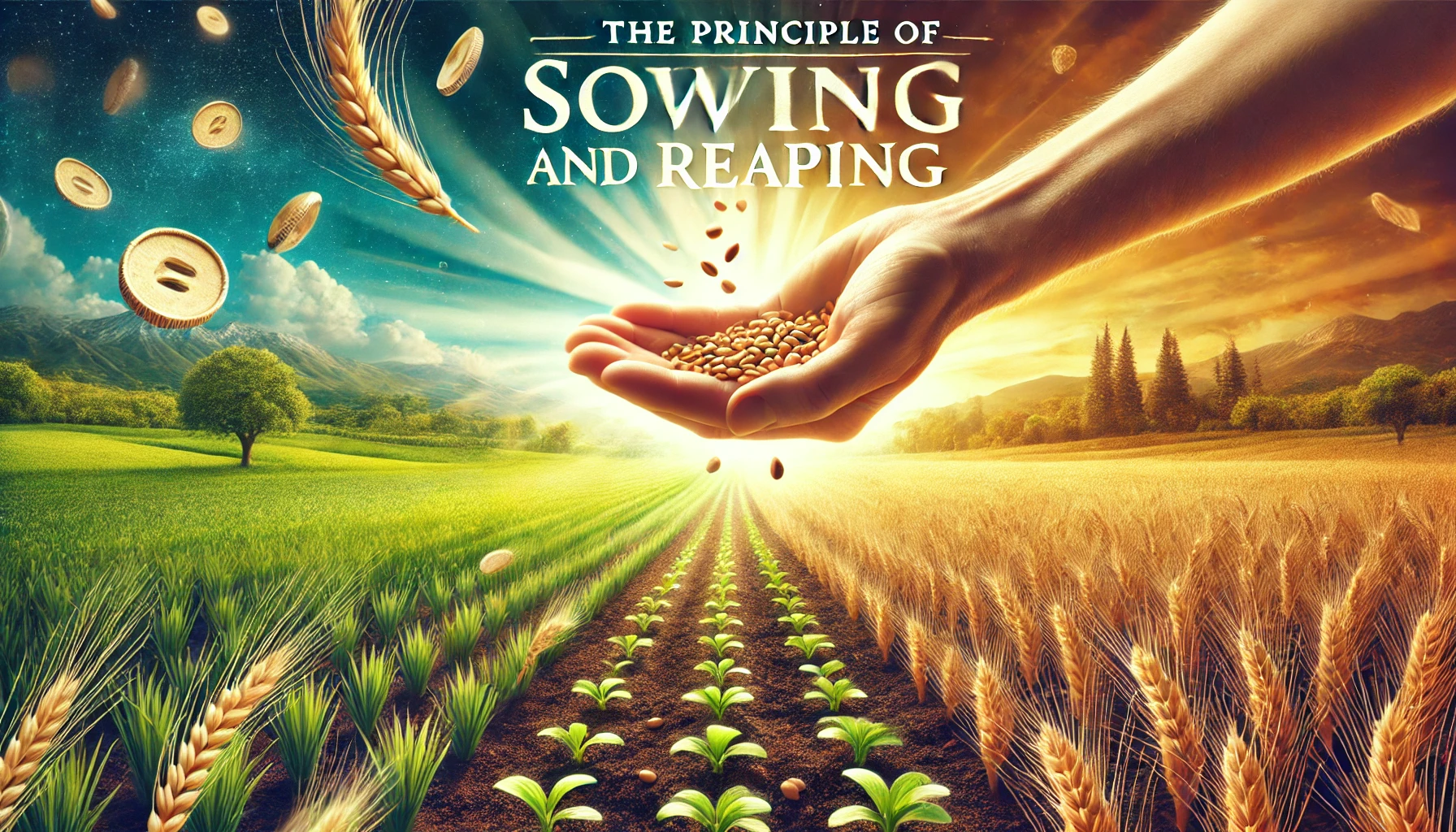Welcome to Day 13 of our 30-day journey. Today, we explore the biblical principle of sowing and reaping. This principle is foundational to understanding how God’s kingdom operates, not just in agriculture but in every area of life, including our finances. The idea is simple: what you sow, you will reap. This applies to our actions, attitudes, and how we use the resources God has given us. Understanding this principle can transform how we approach giving, investing, and managing our finances.
Revelation:
The Bible teaches that you reap what you sow. This means that the choices you make today will determine the harvest you receive in the future. When you sow generously, you can expect to reap generously, both in the physical and spiritual realms. God’s kingdom operates on this principle of sowing and reaping, and it encourages us to be intentional about what we plant with our time, talents, and resources.
Scripture Reference:
Galatians 6:7 – “Do not be deceived: God cannot be mocked. A man reaps what he sows.”
This verse serves as both a warning and an encouragement. It reminds us that our actions have consequences, and that the seeds we plant will determine the harvest we receive. Whether it’s in relationships, work, or finances, we should be mindful of what we are sowing, knowing that it will eventually produce fruit.
Direction:
Today, consider the seeds you are planting in your financial life. Are you sowing seeds of generosity, diligence, and faithfulness? Or are you sowing seeds of selfishness, greed, or negligence? Reflect on the areas of your life where you need to be more intentional about what you are planting. Ask God to help you sow seeds that will produce a harvest of blessings, not just for yourself but for others as well. Remember that the quality of the harvest is directly related to the quality of the seeds you sow.
Meditation:
Reflect on the Parable of the Sower in Matthew 13:1-23. In this parable, Jesus describes a farmer who sows seeds on different types of soil. Some seeds fall along the path, some on rocky ground, some among thorns, and some on good soil. The seeds that fall on good soil produce a crop—some yielding a hundred, sixty, or thirty times what was sown. Jesus explains that the seed represents the word of God, and the different types of soil represent the conditions of people’s hearts.
This parable teaches us about the importance of the condition of our hearts and the intentionality with which we sow seeds. Just as a farmer carefully prepares the soil and sows good seeds, we too must be deliberate in how we plant seeds in our financial lives. Whether it’s through our giving, our work ethic, or how we manage our resources, the seeds we plant should be aligned with God’s word and purposes.
As you meditate on this parable, ask yourself: What kind of soil are you sowing into? Are your financial practices rooted in good soil—guided by biblical principles and a heart for God’s kingdom? Consider how you can better prepare the “soil” of your life to receive and nurture the seeds you plant, ensuring they grow into a fruitful harvest.
Prayer:
“Lord, I thank You for the principle of sowing and reaping that You have established in Your kingdom. I recognize that the seeds I plant today will determine the harvest I receive in the future. Help me to be intentional about sowing seeds of generosity, faithfulness, and diligence in my financial life. Teach me to align my actions with Your word and to trust in Your timing for the harvest. May the seeds I plant not only bless me but also be a blessing to others and bring glory to Your name. In Jesus’ name, Amen.”
Deeper Reflection:
After your prayer, spend some time reflecting on the seeds you have been planting in your life—both positive and negative. Are there areas where you need to change the type of seeds you are sowing? Perhaps you need to be more generous, more disciplined, or more focused on eternal values rather than temporary gains. Write down any insights or changes you need to make and commit to sowing seeds that will lead to a bountiful and God-honoring harvest.
Action Step:
As a practical step, identify one specific area in your financial life where you can start sowing better seeds. This could involve increasing your giving, being more diligent in your work, or investing your time and resources in something that will have lasting value. Create a plan for how you will nurture these seeds over time, ensuring they are planted in good soil and watered with prayer, faith, and consistent effort.
Closing Thought:
The principle of sowing and reaping is a powerful reminder that our actions have lasting consequences. By intentionally planting seeds that align with God’s word and His purposes, we can expect a harvest of blessings in due time. As you continue on this journey, trust that God is faithful to bring forth a harvest that reflects the seeds you have sown. Be patient, be diligent, and always seek to sow seeds that will glorify God and advance His kingdom.

Leave a Reply